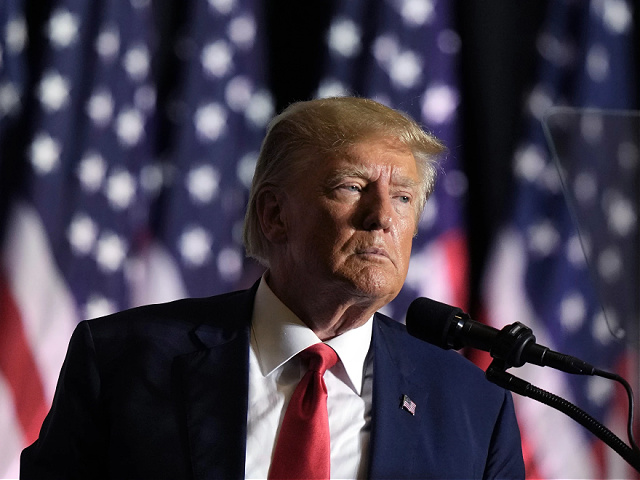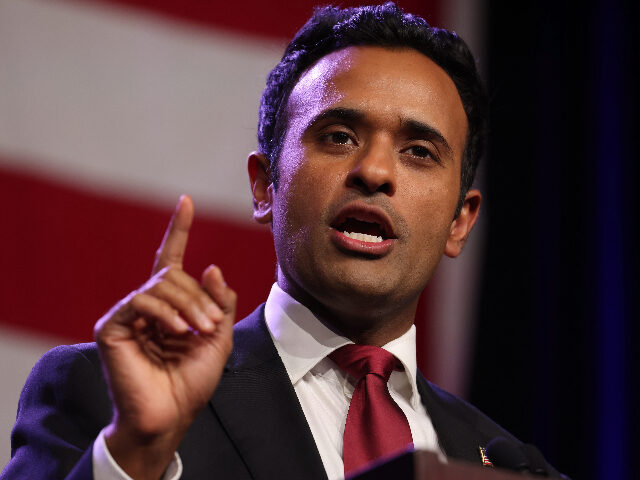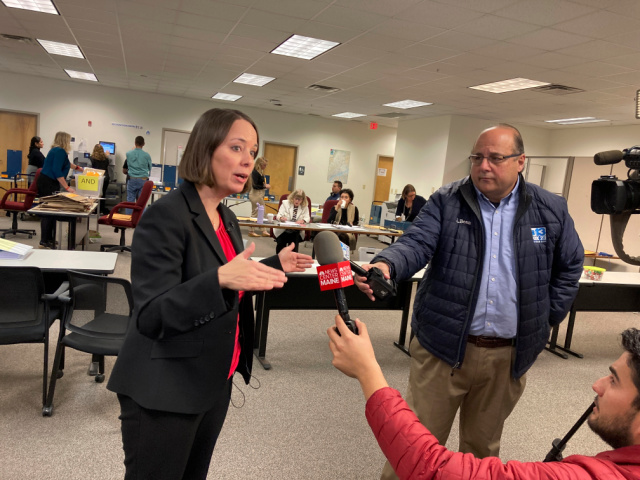Republican presidential candidate Vivek Ramaswamy will file a 41-page amicus brief to the United States Supreme Court on Thursday requesting it overturn the Colorado Supreme Court’s 4-3 decision to disqualify former President Donald Trump from the ballot.
The move marks an interesting dynamic, where Ramaswamy is working to help a campaign rival, but his legal team emphasizes in the filing, as he has himself, that he has an interest in protecting the rights of all voters, even those who would vote for someone else.
Under the “Interest of the Amicus Curiae” in the brief obtained by Breitbart News ahead of its filing at noon Thursday, the candidate’s legal team writes that Ramaswamy “has a profound interest in preserving the right of every voter to cast a ballot for the candidate that best suits his or her preferences, even if that candidate is someone other than himself.”
Vivek Ramaswamy Amicus Brief 1-10-24 by Breitbart News on Scribd
The brief argues an “inescapable” conclusion that efforts to remove Trump from the ballot in multiple states, including Colorado and Maine, are from a fear his opponents would not beat him at the ballot box:
President Trump’s political opponents have sought to disqualify him from the ballot in multiple states because they fear they cannot beat him in a free and fair election. Needless to say, the distress of competing against a formidable opponent cannot justify disqualification under Section 3 of the Fourteenth Amendment. And the consequences of affirming the Colorado Supreme Court’s decision will extend far beyond the dispute over Donald Trump’s eligibility.
Notably, Section Three of the Fourteenth Amendment harbors the Insurrection Clause, which was both cited in the Colorado Supreme Court’s ruling and Maine Secretary of State Shenna Bellows’ ruling. The Colorado order has been stayed until the Supreme Court weighs in on the matter, and Bellows’ decision also hinges on the court’s ruling.
The brief contends that upholding the lower court’s interpretation of Section Three of the Fourteenth Amendment would establish a slippery slope that would allow local state officials, such as secretaries of states and Supreme Court justices, to pursue “national notoriety” in preventing presidential candidates from making future ballots:
Specifically, this Court’s blessing of the lower court’s interpretation of Section 3 will warp incentives for state decision-makers and voters alike. For secretaries of state and state supreme court justices, the path to national notoriety will be illuminated: To enhance your credibility among co-partisans, simply concoct a reason to declare a disfavored presidential candidate of the opposing party ineligible to run for office. For voters, the message will be equally clear: Scour the records of disfavored candidates for speeches containing martial rhetoric, or even policies that had unintended consequences, and then file challenges under Section 3. The number of Section 3 complaints will proliferate, as will the number of divergent outcomes.
But even if the Court finds these consequences unconvincing, there are strong textual and structural reasons for rejecting the Colorado Supreme Court’s reading of Section 3. Most obviously, the phrase “officer of the United States” in the context of Section 3 has never been understood to cover the President of the United States. The available constitutional evidence, combined with the disruptive effects of disqualification, should lead this Court to reverse the decision below.
Moreover, it asserts that “strong textual and structural reasons for rejecting the Colorado Supreme Court’s reading of Section 3” exist, including that the language of “Officer of the United States,” under Section Three, “has never been understood to cover the President of the United States.”

Former President Donald Trump speaks during a rally on July 7, 2023 (AP Photo/Charlie Riedel, File).
“The available constitutional evidence, combined with the disruptive effects of disqualification, should lead this Court to reverse the decision below,” it adds.
The case is Trump v. Anderson, No. 23-719, in the Supreme Court of the United States of America.


COMMENTS
Please let us know if you're having issues with commenting.